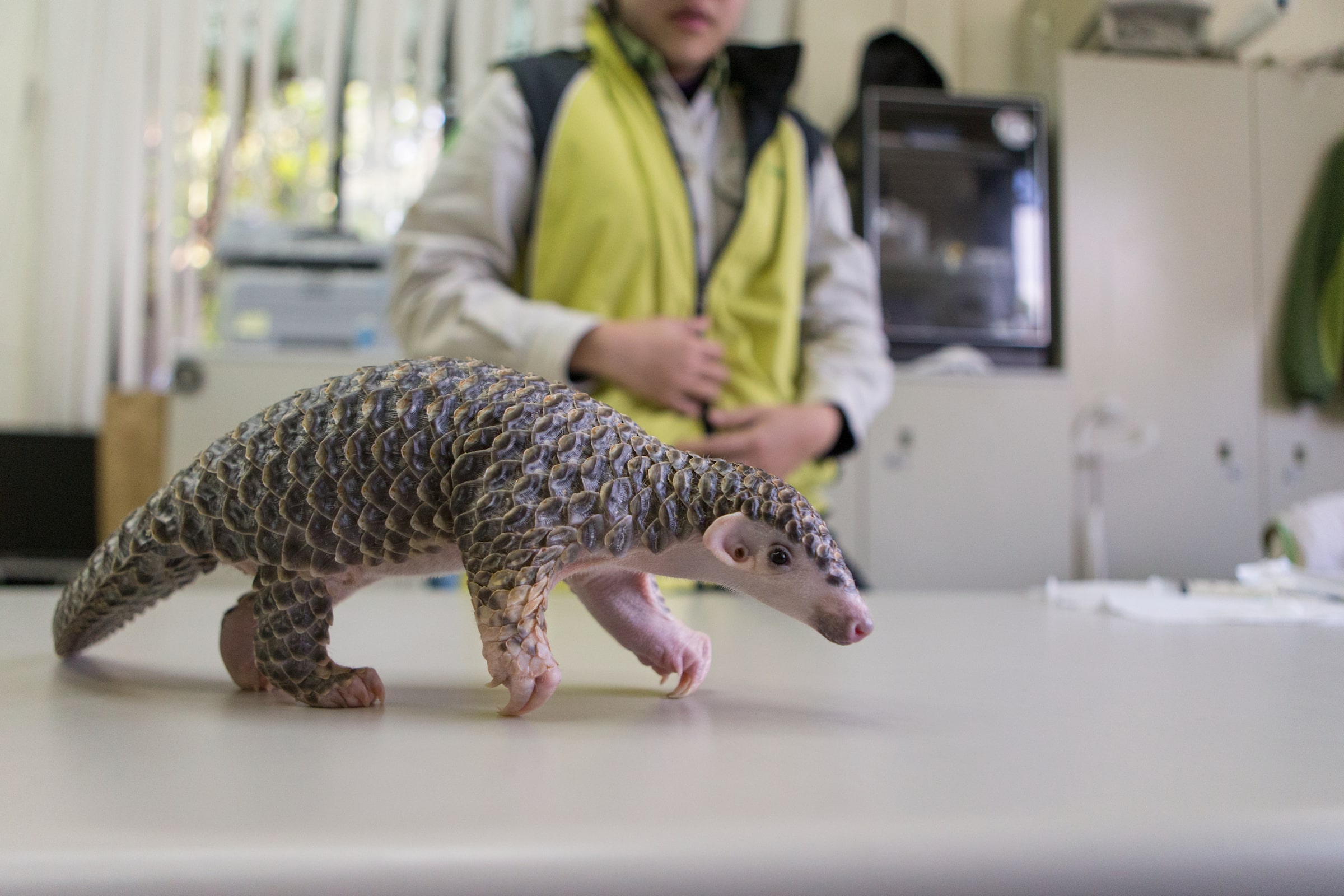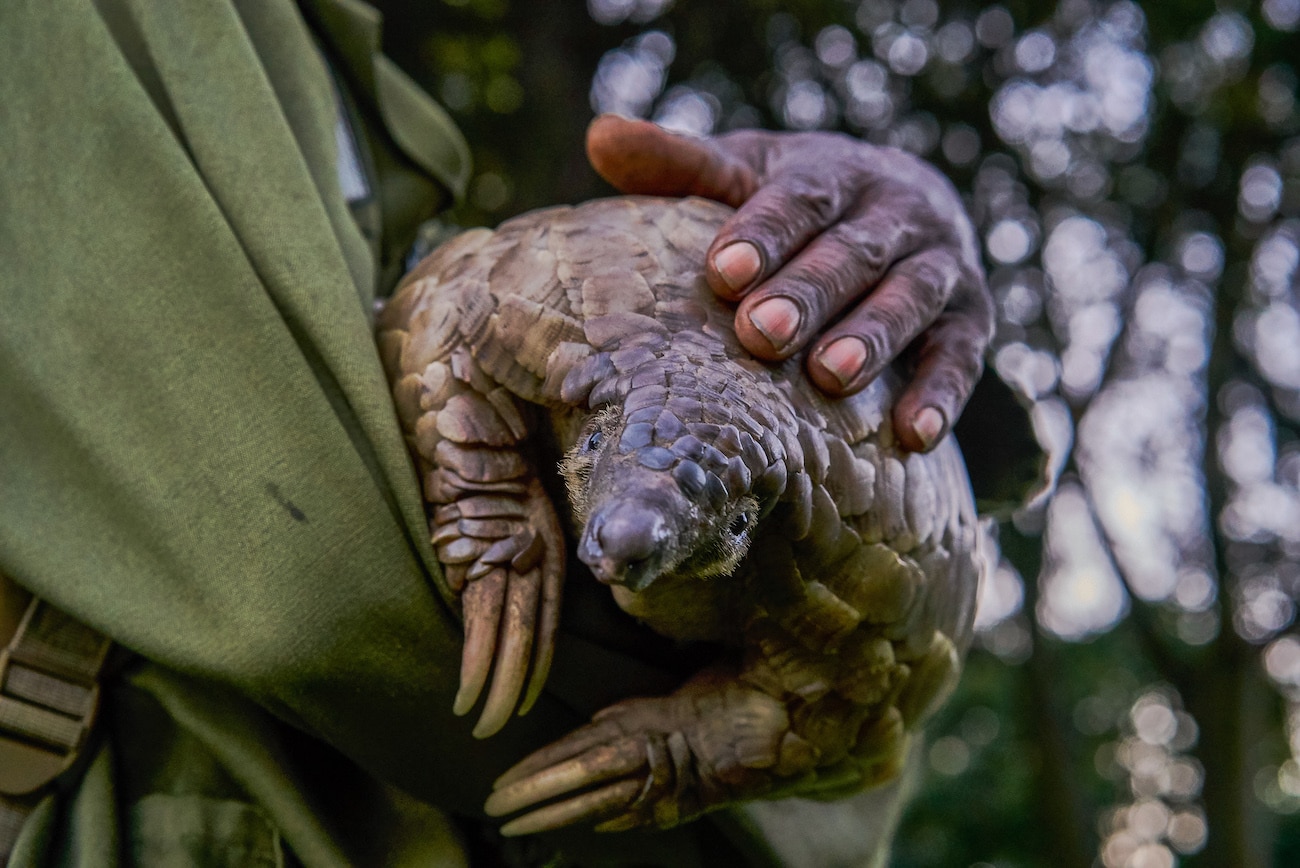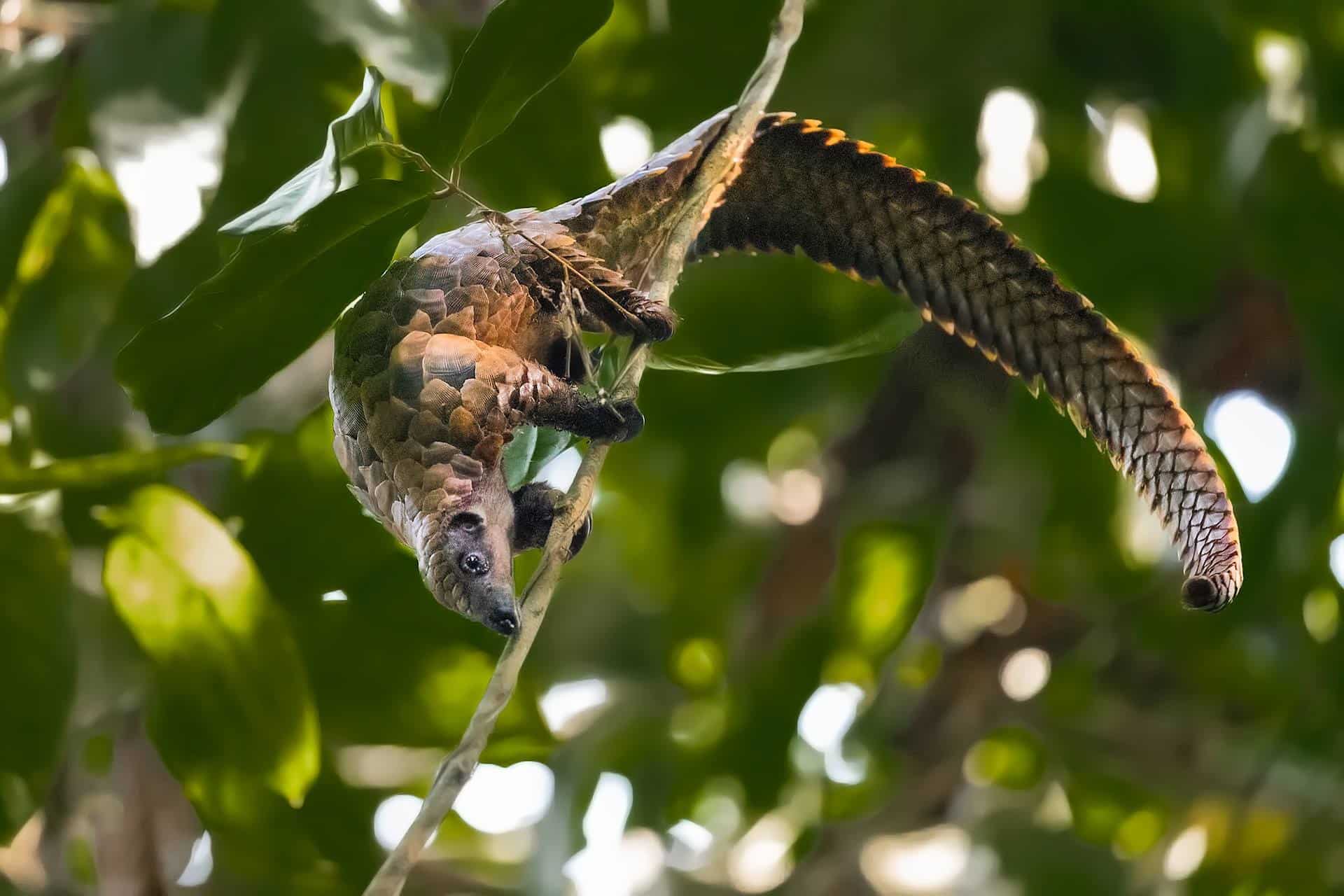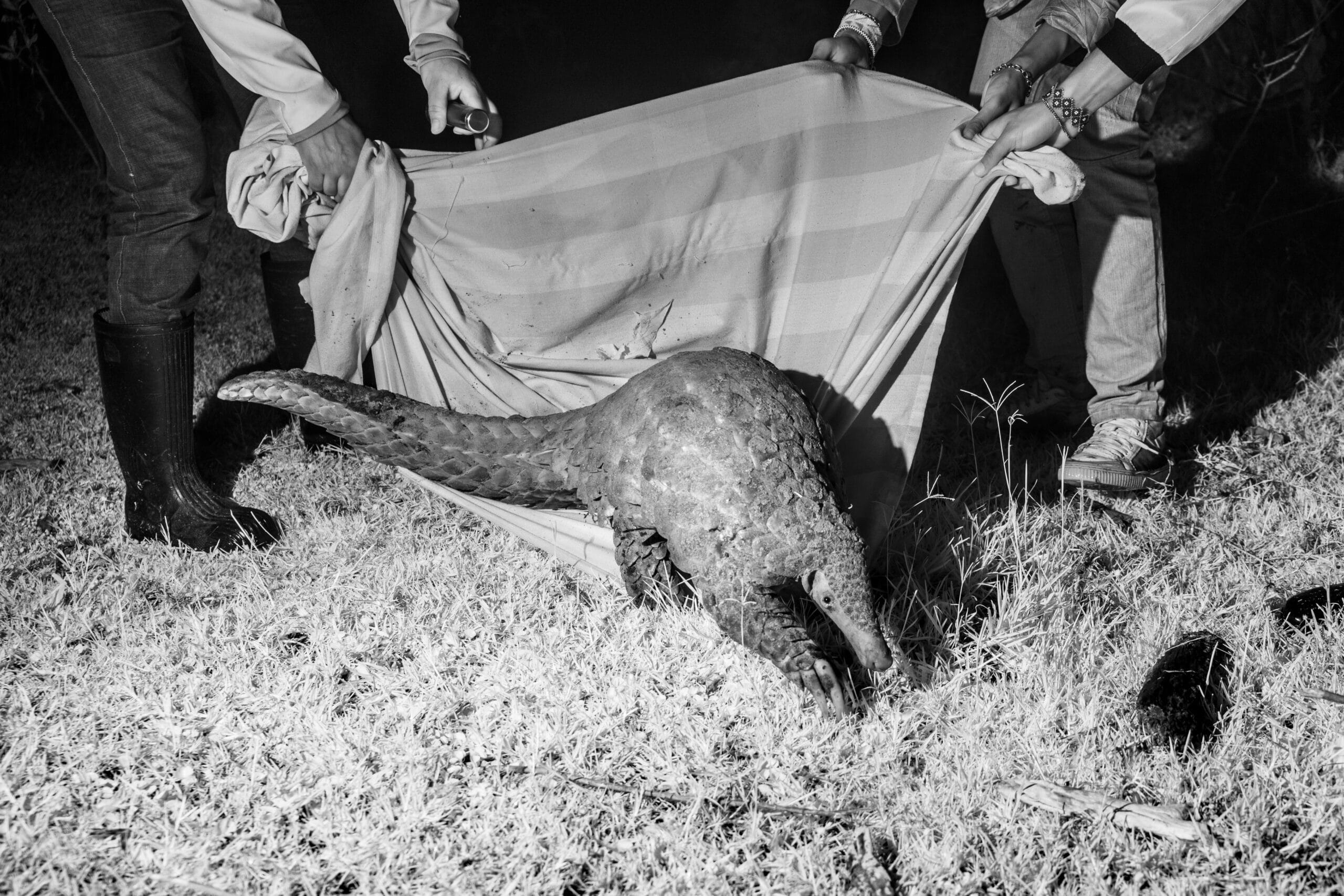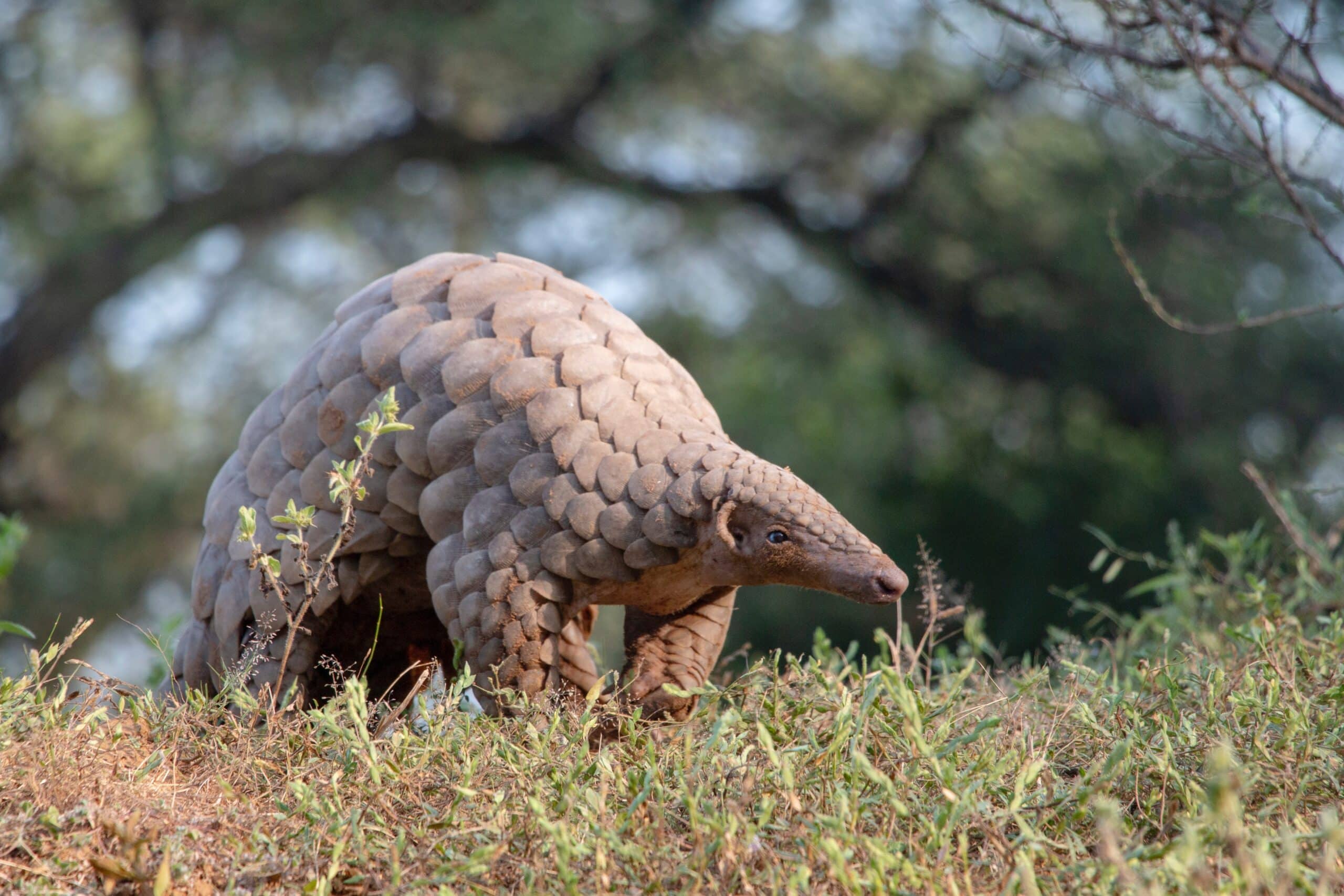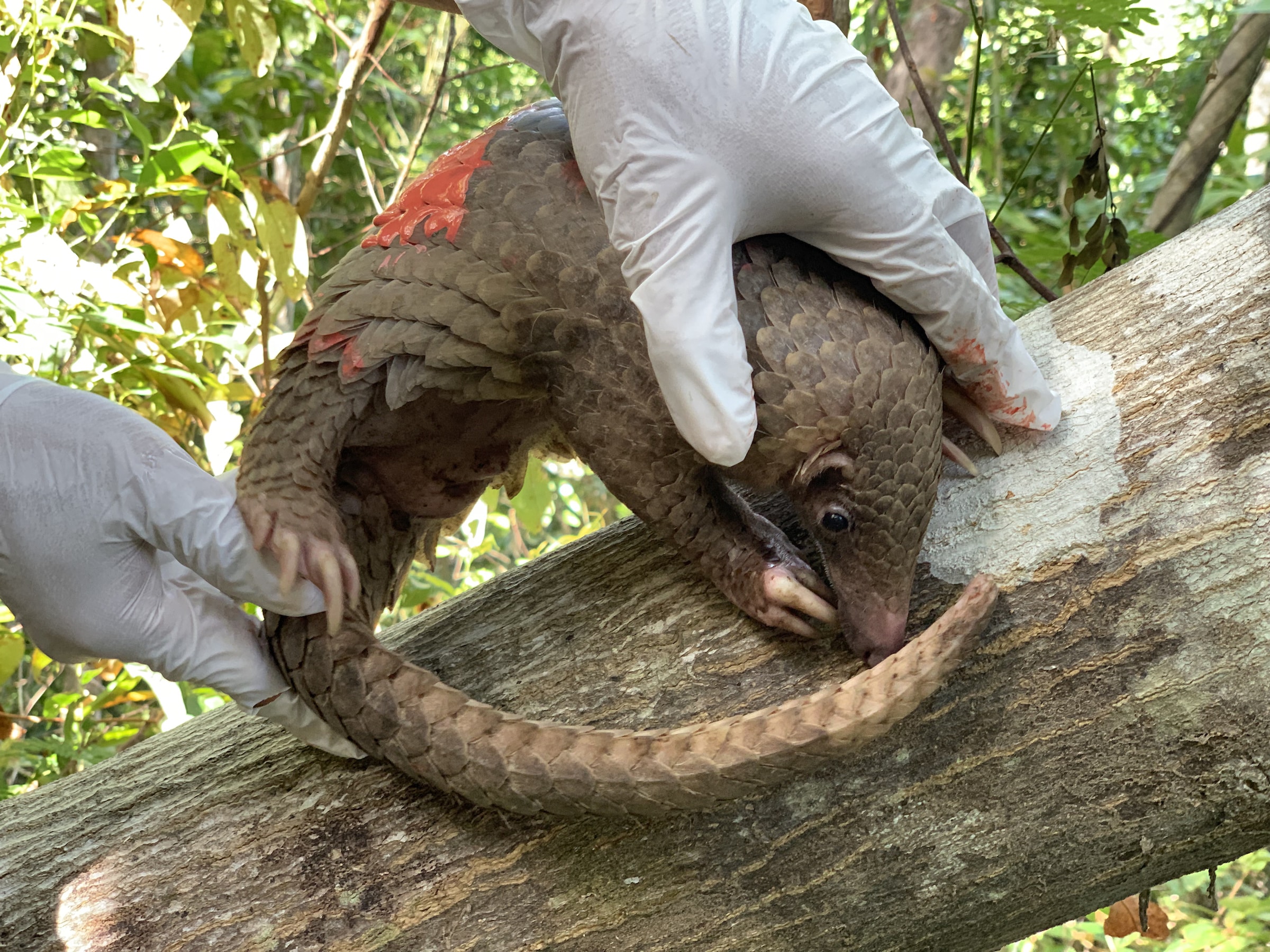In 2019, the Wildlife Conservation Network partnered with Save Pangolins to establish the Pangolin Crisis Fund (PCF), the world’s largest funding mechanism dedicated solely to safeguarding all eight pangolin species from extinction. This year marks the Pangolin Crisis Fund’s five-year anniversary—five years of investing in effective and innovative projects across Africa and Asia that protect pangolins and their habitats, disrupt illegal wildlife trade networks, and reduce the demand for pangolin scales and meat.
Pangolins are the most illegally trafficked mammals on Earth, victims of a rampant global trade that targets these vulnerable animals so relentlessly that it’s difficult to even estimate how many pangolins remain in the wild. But conservationists and authorities agree that without protection, all pangolin species are at risk of vanishing for good. Protecting them is no easy feat, and the PCF was created to ensure that pangolins could be saved while there’s still time left.
Over the last five years, your incredible support has helped the PCF disburse over $6.1 million to invest in more than 90 pangolin conservation projects in 28 countries. Together, we’ve made considerable progress in securing vital habitats for pangolins, rescuing and rehabilitating pangolins from wildlife criminals, and collaborating with law enforcement and local communities to ensure that awareness and protections for pangolins continues to increase. These lasting impacts have made a world of difference for pangolins, and we’re just getting started.
To celebrate our five-year anniversary and all that you’ve helped us achieve, we’d like to highlight a few of the most significant projects that the PCF has supported since launching in 2019.
WildAid – New Wildlife Legislation in Cameroon
WildAid has worked to secure new forestry and wildlife protections in Cameroon that will benefit pangolins and countless other species that share their ecosystems. With support from the PCF, WildAid was part of a collective effort to get this new legislation passed earlier this year, which introduces measures to regulate the use of wildlife resources and protect key habitats. This law also provides a legal framework for sustainable wildlife management and imposes harsher penalties on wildlife criminals. Most importantly, this law significantly bolsters protections for all three pangolin species found in Cameroon—black-bellied, white-bellied, and giant pangolins—as well as gorillas, chimpanzees, elephants, lions, giraffe, leopards, and dozens of endangered bird species.
The Pangolin Project – Saving Kenya’s Last Giant Pangolins
In late 2023, PCF Director Araluen Schunmann visited The Pangolin Project (TPP) in Kenya, who are protecting the country’s last pocket of giant pangolins—an estimated 30 individuals. Their numbers have dwindled over the years due to the pervasive threat of electric fencing, used by farmers and landowners to mark property boundaries and protect their livestock. Pangolins can easily become caught on the bottom strand of these fences, which are often fatal to these small giants. The PCF issued its second largest grant ever to TPP to tackle this threat, as well as threats to pangolin habitat posed by deforestation and pastoral usage. TPP has made tremendous progress, visiting more than 1,800 households to discuss deactivating the electricity on the bottom strand of property fences and succeeding in getting farmers to remove nearly 45 miles of fencing. They also protected over 3,300 acres of habitat from destructive practices, with plans to secure an additional 25,000 acres for conservation. In the span of a year, TPP has almost single-handedly reduced giant pangolin fatalities on electric fences from two or three every month to only two incidents this year.
Wildlife Trust of India – Disrupting Pangolin Trafficking Routes
Northeast India is home to the highly endangered Chinese pangolin and Indian pangolin. Both species are hunted in this area and transported to the Golden Triangle, a major wildlife trafficking hub between Thailand, Myanmar, and Laos. To protect these fragile pangolin populations, the PCF supported the efforts of Wildlife Trust of India to identify pangolin trade hotspots, build capacity among local law enforcement to curb this activity, and establish a community-based intelligence network to reduce pangolin poaching in the region. In a landmark conservation effort, Wildlife Trust of India also succeeded in getting 252 villages across the state of Manipur to commit to not hunting, eating, or trading pangolins. These villages are located along the Indo-Myanmar border, where a key wildlife trafficking route exists, and will aid efforts to disrupt pangolin trafficking to the Golden Triangle and the rest of Asia.
Katala Foundation – Protecting Rare Palawan Pangolins
Palawan pangolins, found only in the Palawan province of the Philippines, are one of the rarest of all pangolin species and are very vulnerable to extinction due to poaching and habitat loss. The PCF supports the Katala Foundation, who are monitoring these elusive pangolins and leading an important community education project to teach local people about the importance of maintaining healthy landscapes for wildlife. To reinforce this message, Katala Foundation awards points to communities who place camera traps around their villages to record pangolins and signs of their presence, such as burrows or scratch marks. These points are turned in for tangible benefits to their communities, such as money that can be used to buy farming equipment. The PCF will also be supporting the next phase of this program, which will expand into more communities and begin to build a contiguous landscape of community stewardship and protected areas for the first time ever in the Palawan province.
Langland Conservation – Tailored Support to Fight Wildlife Criminals
To combat illegal wildlife traffickers, authorities and conservationists often need cutting-edge, specially-tailored tools to address the unique challenges inherent in their respective corners of the world. The PCF has funded Langland Conservation to develop bespoke support for many of our partners in the form of predictive modeling, regional mapping, and detailed data analysis. These tools enable PCF grantees and law enforcement to execute operations more effectively and use funding more efficiently. For example, Langland Conservation might combine ranger patrol data with animal sighting data to help teams target areas with the greatest importance for pangolins, or analyze wildfire data to pinpoint hotspots for poaching camps or unsanctioned land clearance. Support from Langland Conservation has led to critical intelligence successes that have helped protect pangolins.
We are incredibly proud of the major impacts from these projects and so many others that you helped the Pangolin Crisis Fund make possible in our first five years. You inspire us to be hopeful about the future for pangolins that we can create together, but there’s still much to be done to pull this amazing species back from the brink. The demand that has driven pangolin poaching for decades will take longer than five years to eliminate. Nearly every project that we support is ongoing and relies on PCF funding to continue, so we are grateful for your continued support in our mission to save pangolins from extinction.
Thank you for five remarkable years. We look forward to all that we can accomplish together for pangolins in the next five!


